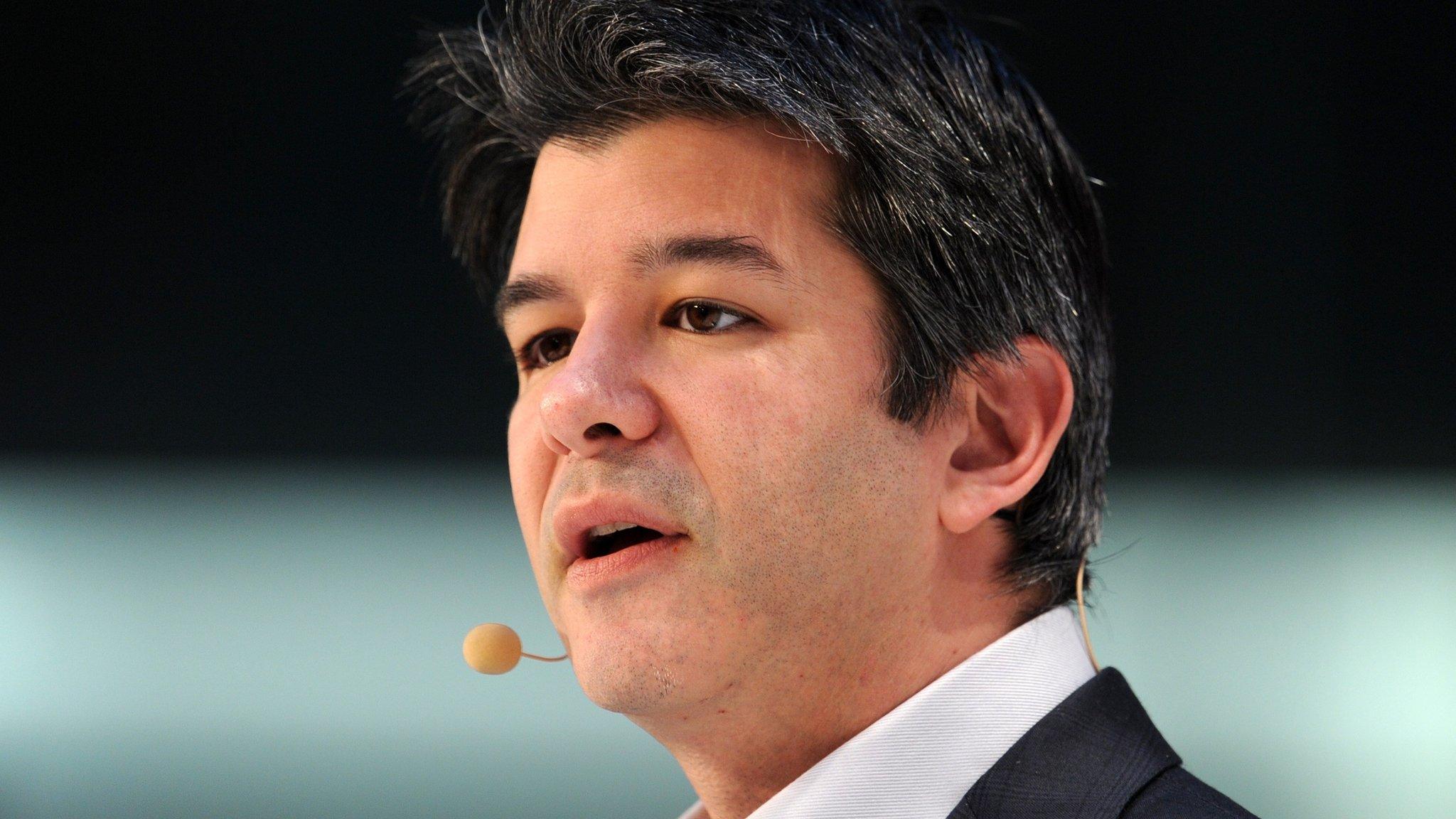Silicon Valley's women have spoken. Now what?
- Published
- comments
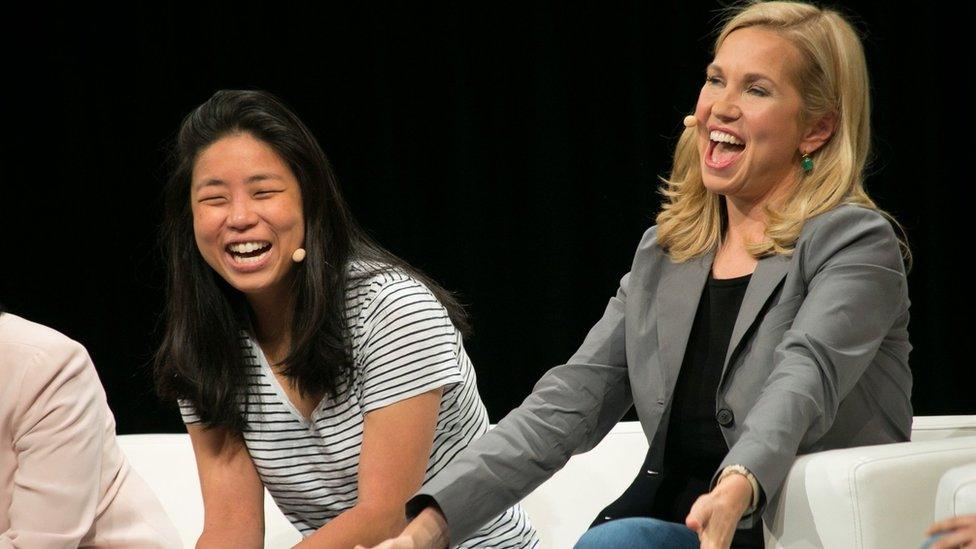
Jessica Livingston, right, believes women are forcing change in Silicon Valley
"It's been going on for a while."
It's a phrase I've heard a lot since Susan Fowler, an ex-Uber employee, published her explosive blog post that ultimately toppled one of the most powerful chief executives in San Francisco.
"I'll tell you - Susan Fowler kicked off a big thing here," says Jessica Livingston, who co-created Y Combinator, the most highly-respected start-up investment programme in Silicon Valley.
"That's what you have to understand. This stuff was happening all the time and people were complaining to their confidants and sharing it with their family.
"No-one was coming forward on the record with 'here's an account of these horrible things that happened to me'. It just felt too scary, a possible career breaker for people. That was the feeling."
But that may be changing, if the mood at Y Combinator's Female Founders conference is anything to go by. The annual event is a gathering of would-be and successful female entrepreneurs. And this year it has been given added vigour. Call it, the "Uber in the room".
"We couldn't have this conference without referencing it, I mean come on!" Ms Livingston continues.
"It's such crazy stuff. I do think there is an undercurrent in the conference today of 'this is awful stuff that's happening, but it's been going on for a while... and now things are going to change.'"
Dramatic change
Change won't come easy, but for the first time it may be in reach.
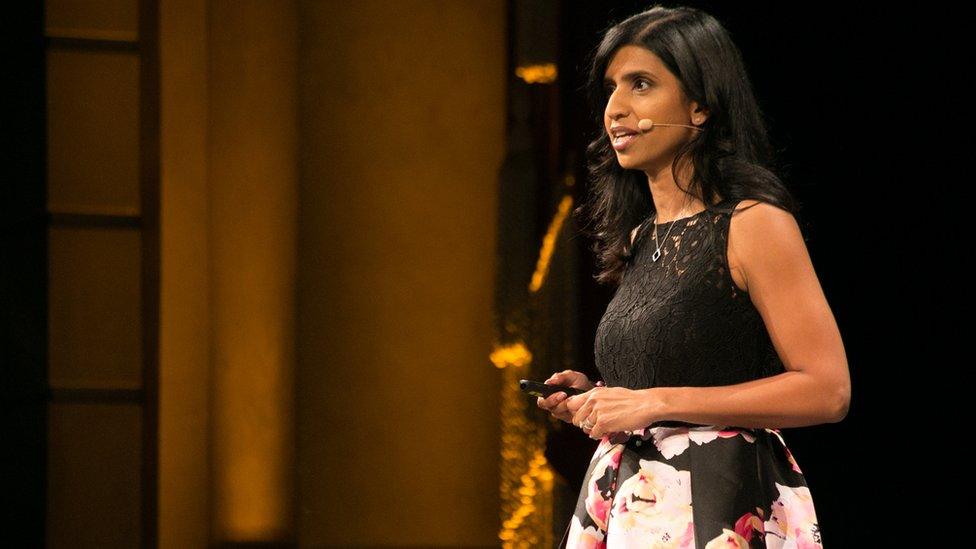
Avni Patel Thompson says a support network for new entrepreneurs would help
While Uber's crisis has garnered the most headlines, perhaps the more significant fall-from-grace in Silicon Valley this year has been that of Justin Caldbeck, a venture capitalist who just a week ago was accused of several instances of sexual harassment, external.
In the space of two days he denied the claims, then took a leave of absence, and then resigned. Now the investment firm he founded, Binary Capital, has capitulated - with backers removing their support and, crucially, their money.
"If you look at the way things have played out over the past week at Binary, there's been a change every single day, and it's gotten more dramatic every single day," Ms Livingston tells me.
"To the point where we are feeling like people are responding. People are being held accountable - they're not sweeping it under the carpet."
Abuse pattern
Abuse often harbours in situations when one individual holds the key to another's dream: an actress desperate to land that first big role, or an athlete wanting to get closer to the big leagues.
In Silicon Valley, it's often an inexperienced entrepreneur, panicking about rent money, and desperate for that first piece of funding that would set them on their way to creating their company.
Those early investments, known as seed funding, are make or break.
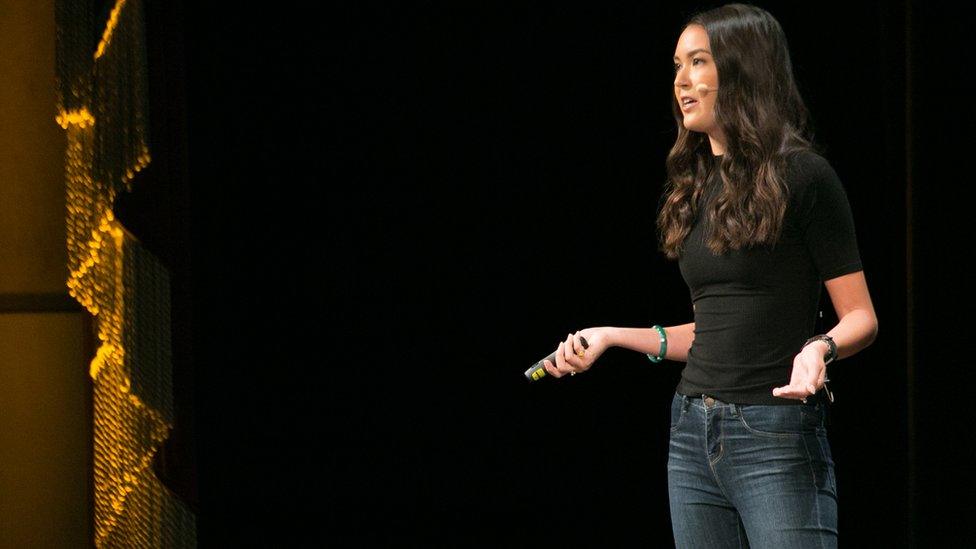
Laura Behrens-Wu says female entrepreneurs seeking their first funding round are most vulnerable
"Pre-seed, before you're part of the network, that's when women are most vulnerable," says Laura Behrens-Wu, co-founder of shipping start-up Shippo, which recently raised $7m.
"They don't know anyone here yet, they don't have anyone to turn to.
"If someone harassed me today I'd have people to turn to, people who can stand up for me and make sure that this never happens again."
Without that support network, Ms Behrens-Wu argues, the prospect of speaking out against abusers is terrifying and insurmountable.
"When [investors] Google your name, you don't want stories about sexual harassment to be the first thing that comes up.
"[Women are] worried they're being seen as the trouble makers by other people."
Strength in numbers
Filling this support and accountability vacuum could perhaps change things here - something that might give new arrivals in Silicon Valley a strong footing from which to protect themselves.
One suggestion, that I wrote about last week, is a "Decency Pledge" - a code of conduct shared across the technology industry. That has been met with a mixed response. Surely, many argue, people shouldn't have to sign a "pledge" to exercise what should be common decency?
Avni Patel Thompson, founder of on-demand childcare start-up Poppy, says the best solution may be to equip new entrepreneurs with the same kind support network that give more experienced women the strength to come forward and confront unacceptable behaviour.
"Everyone talks about backchannel references, right? I think there are those of us that are plugged into certain networks that have access to that.
"But how do we make that accessible to the people that need it the most, which are the folks that are just getting started and don't know up from down and all these type of things. They're just trying to fight the good fight.
"How can we make some of these things available? That's some of the conversations that we, as female founders, are having."
Added protection
Y Combinator is a tech incubator programme that twice a year takes on a bunch of promising start-ups, gives them about $100,000, and coaches them to potential success. It has spawned several successes, such as Dropbox, Reddit and payments firm Stripe.
And for those lucky enough to get on the programme, it also provides an added layer of protection against possible abuses.
"We will speak up on the founders' behalf, always," Jessica Livingston tells me.
"We've just launched internally an anonymous forum if anyone has faced racism or harassment they can let us know anonymously. We are trying to do things to help."
But looking long-term, a more gender-diverse technology industry is seen as the only genuine solution to this problem.
"I'm always hoping that more women get into the game," Ms Livingston continues.
"We do need to have more female venture capitalists (VCs), and managing director level VCs. Almost all of them are men.
"There are so many things that have to work together to really create change."
___________
Follow Dave Lee on Twitter @DaveLeeBBC, external
You can reach Dave securely through encrypted messaging app Signal on: +1 (628) 400-7370
- Published24 June 2017
- Published21 June 2017
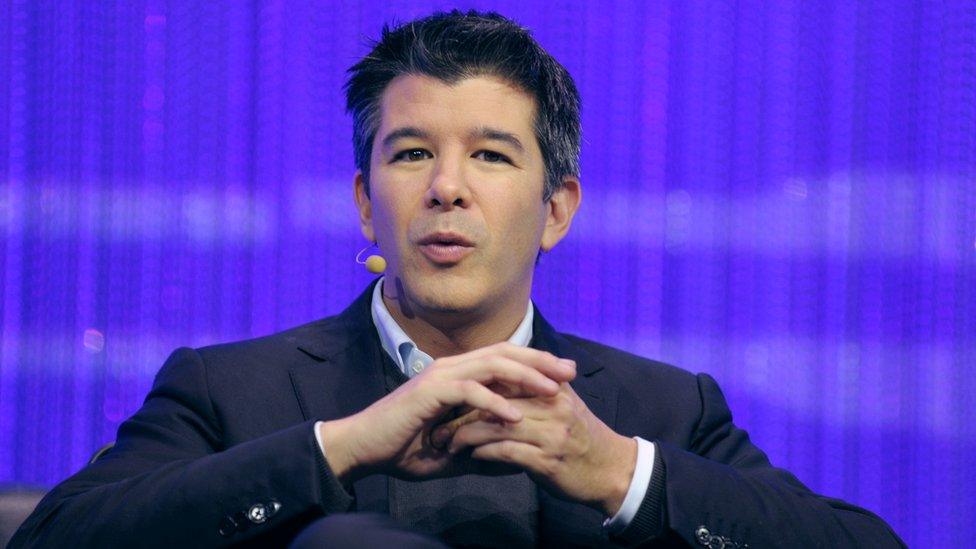
- Published21 June 2017
